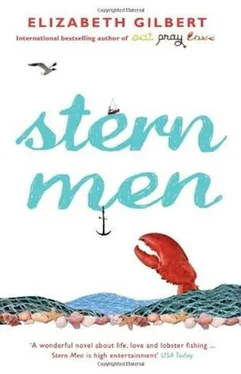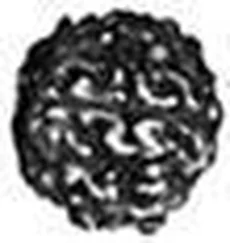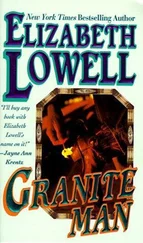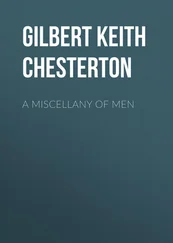“This is an interesting wedding toast,” Ruth whispered to Mrs. Pommeroy.
Mr. Ellis went on. “Now you are all lobstermen. That’s fine work, too. Some of you are Swedes, the descendants of Vikings. The Vikings used to call the ocean the Path of the Lobster. I am an old man. What will happen to Fort Niles and Courne Haven when I am gone? I am an old man. I love these islands.”
Mr. Ellis stopped speaking. He was looking at the ground. He had no expression on his face, and an observer might have thought that the man had no idea where he was, that he had forgotten he was speaking to an audience. The silence lasted a long time. The wedding guests began to look at one another. They shrugged and looked at Cal Cooley, standing a few feet behind Mr. Ellis. But Cal did not appear concerned; he wore his usual expression of bored disgust. Somewhere, a man coughed. It was so quiet, Ruth could hear the wind in the trees. After a few minutes, Babe Wishnell stood up.
“We want to thank Mr. Ellis for coming all the way over to Courne Haven,” he said. “How about that, everyone? That means a lot to us. How about a big hand for Mr. Lanford Ellis? Thanks a lot, Lanford.”
The crowd broke into relieved applause. Cal Cooley wheeled his boss to the side of the tent. Mr. Ellis was still looking at the ground. The band started to play, and a woman laughed too loudly.
“Well, that was an unusual toast, too,” said Ruth.
“Do you know who’s over at Pastor Wishnell’s house, sitting on the back steps of the house all by himself?” Mrs. Pommeroy asked Ruth.
“Who?”
“Owney Wishnell.” Mrs. Pommeroy handed Ruth a flashlight. “Why don’t you go find him? Take your time.”
From hunger to cannibalism is a short step, and although the lobster fry are kept from congregating, there still occur chances of individuals coming momentarily into contact with one another, and, if hungry, they make the most of their opportunities.
– A Method of Lobster Culture A. D. Mead, Ph.D. 1908
RUTH, WITH HER WHISKEY in one hand and Mrs. Pommeroy’s flashlight in the other, found her way over to Pastor Wishnell’s house. There were no lights on inside. She walked to the back of the house and discovered, as Mrs. Pommeroy had said she would, Owney. He was sitting on the steps. He made a big shadow in the dark. As Ruth slowly moved the beam of the flashlight over him, she saw that he was wearing a gray sweatshirt with a zipper and a hood. She went over and sat beside him and turned off the flashlight. They sat in the dark for a while.
“Want some?” Ruth asked. She offered Owney her glass of whiskey. He accepted it and took a long swallow. The contents of the glass didn’t seem to surprise him. It was as if he was expecting whiskey from Ruth Thomas at that moment, as if he’d been sitting here waiting for it. He handed her the glass, she drank some, and passed it back to him. The drink was soon gone. Owney was so quiet, she could scarcely hear him breathing. She set the glass on the step, near the flashlight.
“Do you want to go for a walk?” she asked.
“Yes,” Owney said, and he stood up.
He offered her his hand, and she took it. A solid grip. He led her back through the garden, over the low brick wall, past the roses. She had left the flashlight on the steps of the house, and so they picked their way carefully. It was a clear night, and they could see their way. They walked through a neighbor’s yard, and then they were in the woods.
Owney led Ruth to a path. Now it was dark, because of the overhang, the shadow of spruces. The path was narrow, and Owney and Ruth walked single file. Because she didn’t want to fall, she put her right hand on his right shoulder to balance herself. As she felt more confident, she took her hand off his shoulder, but reached for him whenever she was unsure.
They did not speak. Ruth heard an owl.
“Don’t be afraid,” Owney said. “The island’s full of noises.”
She knew those noises. The woods were at once familiar and disorienting. Everything smelled, looked, sounded like Fort Niles but wasn’t Fort Niles. The air was sweet, but it was not her air. She had no idea where they were, until, suddenly, she sensed a great opening to her right, and she realized they were high up, along the edge of a gutted quarry. It was an old Ellis Granite Company scar, like the ones on Fort Niles. Now they moved with great caution, because the path Owney had chosen was only four feet or so from what seemed to be a serious drop. Ruth knew that some of the quarries were several hundred feet deep. She took baby steps because she was wearing sandals, and the soles were slippery. She was aware of a slickness beneath her feet.
They walked along the edge of the quarry for a while and then were back in the woods. The sheltering trees, the enclosed space, the embracing darkness was a relief, after the wide gape of the quarry. At one point they crossed an old railway. As they got deeper into the woods, it was hard to see, and after they had walked a half hour, in silence, the dark suddenly became thicker, and Ruth saw why. Just to her left was a shelf of granite reaching up into the darkness. It may have been a wall a hundred feet high of good black granite; it swallowed up the light. She reached out and brushed the surface with her fingers; it was damp and cool and mossy.
She said, “Where are we going?” She could really barely see Owney.
“For a walk.”
She laughed, a quiet, nice sound that didn’t travel at all.
“Is there a destination?” she asked.
“No,” he said, and, to her great delight, he laughed. Ruth joined him; she liked the sound of their laughter in these woods.
Now they stopped. Ruth leaned back against the granite wall. It was slightly tilted, and she tilted with it. She could just make out Owney standing in front of her. She reached out to his arm and felt along it all the way down to his hand. Nice hand.
“Come here, Owney,” she said, and laughed again. “Come in here.” She pulled him close, and he put his arms around her, and there they stood. Against her back was the cold dark granite; against the front of her was Owney Wishnell’s big warm body. She pulled him closer and pressed the side of her face to his chest. She really, really liked the way he felt. His back was wide. She didn’t care if this was all they did. She didn’t care if they held each other this way for hours and did nothing else.
No, actually; she did care.
Now everything was going to change, she knew, and she lifted her face and kissed him on the mouth. To be exact, she kissed him in the mouth, a thoughtful and long wet kiss and-what a nice surprise!-what a fat, excellent tongue Owney Wishnell had! God, what a lovely tongue. All slow and salty. It was a gorgeous tongue.
Ruth had kissed boys before, of course. Not many boys, because she didn’t have access to many. Was she going to kiss the Pommeroy sons? No, there hadn’t been many eligible boys in Ruth’s life, but she’d kissed a few when she’d had the chance. She had kissed a strange boy on a bus to Concord one Christmas, and she had kissed the son of a cousin of Duke Cobb’s who’d been visiting for a week from New Jersey, but those episodes were nothing like kissing Owney Wishnell’s big soft mouth.
Maybe this was why Owney spoke so slowly all the time, Ruth thought; his tongue was too big and soft to form quick words. Well, what of it. She put her hands on the sides of his face and he put his hands on the sides of her face, and they kissed the hell out of each other. Each held the other’s head firmly, the way you hold that of an errant child and get right in his face and say, “Listen!” And they kissed and kissed. It was great. His thigh was shoved so hard up into her crotch that it almost lifted her off the ground. He had a hard, muscled thigh. Good for him, Ruth thought. Nice thigh. She didn’t care if they never did anything but kiss.
Читать дальше









